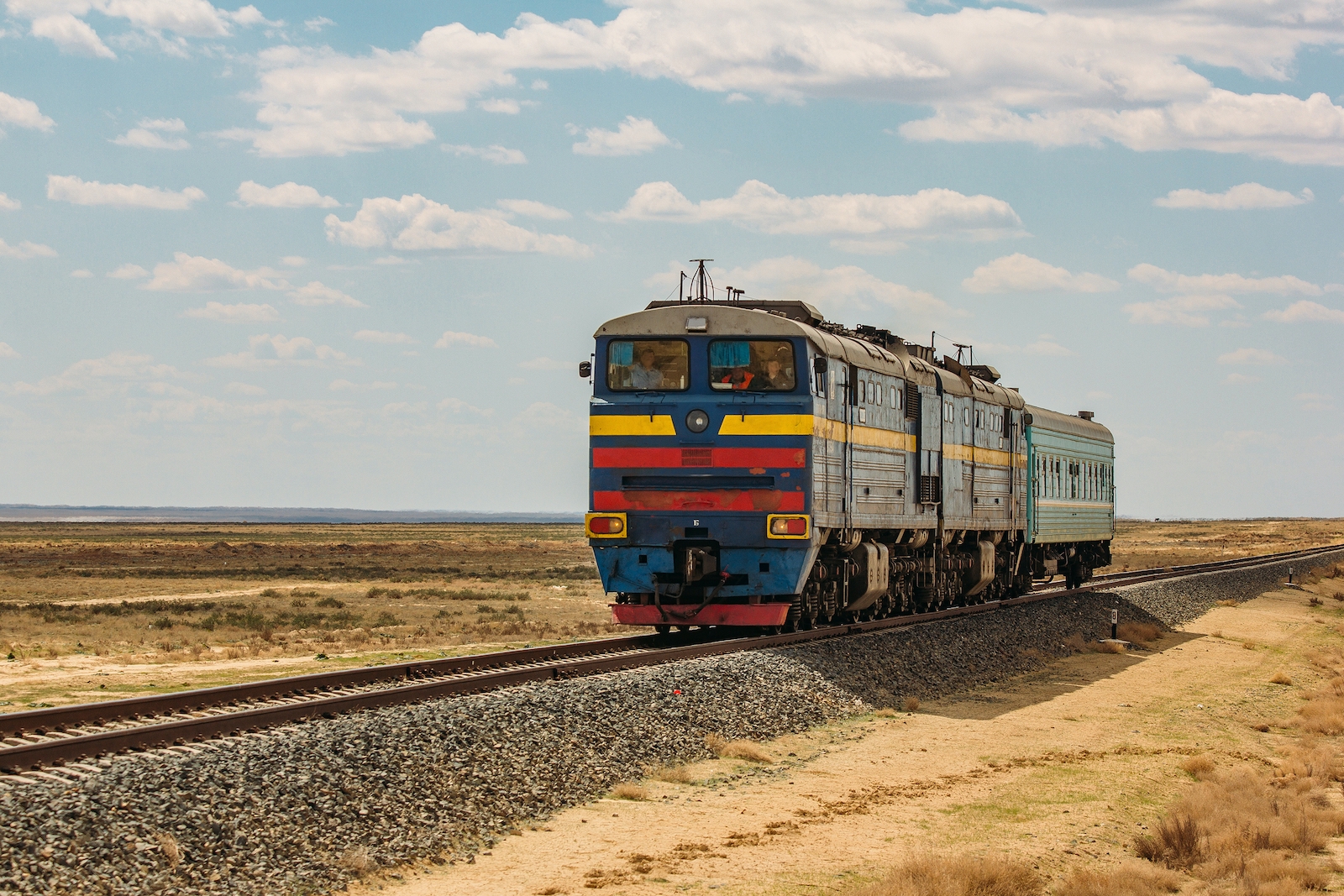
‘Middle Corridor’ Brings Kazakhstan Closer to Turkey
Due to the global preoccupation with Russia’s war against Ukraine, the May 10 meeting in Ankara between Kassym-Jomart Tokayev, Kazakhstan’s president, and Turkish President Recep Tayyip Erdoğan has mostly slipped under mainstream geopolitical radars. Nonetheless, their “Joint Statement on Enhanced Strategic Partnership” marks a new phase not just in bilateral relations but also in the reconfiguration of the multilateral map of Central Eurasia. Though hardly the only one, perhaps the most broadly significant aspect of the agreement is their mutual commitment to enhance the Trans-Caspian International Trade Route (TITR), also called the “Middle Corridor.”
As Tokayev noted, “After Kuryk seaport [on Kazakhstan’s Caspian Sea coast] joined the Trans-Caspian corridor, cargo transportation time from Khorgos [on Kazakhstan’s border with China] to Istanbul…which used to take 60 days, now arrives in just 13 days.” He added that Kazakhstan has already started “diversifying oil export routes to China and Europe, including the use of Turkish transport corridors.” This trend will only get stronger, as Kazakhstan increases the capacity of oil pipelines and upgrades the Aktau and Kuryk seaports.
Even with exemptions from sanctions for Kazakhstani crude reaching the Black Sea through the pipeline of the Caspian Pipeline Consortium, exports were stalled in March because of storm damages and sanctions-induced problems for Russia in finding spare parts.
Under Tokayev’s presidency, Kazakhstan was the driving diplomatic force behind the November 2021 transformation of the Turkic Council into the Organization of Turkic States (OTS). The OTS is a genuine intergovernmental organization with a self-standing secretariat, comprising Azerbaijan, Kyrgyzstan, and Uzbekistan, in addition to Turkey and Kazakhstan. (Hungary and Turkmenistan have official observer status.)
Russia’s war against Ukraine has put these Turkic states in a bind. On the one hand, they do not want to openly offend Russia; on the other hand, the international community expects them to restrict relations with Russia, not least through complying with economic sanctions. Kazakhstan, for example, as a member of the Russian-led Eurasian Economic Union (EAEU), is under the threat of sanctions for cooperating with Russia even though it has so far abided by international sanctions.
Kazakhstan’s neutrality has even aroused commentators in Russian media, who have become intemperate, condescending, and even insulting towards Kazakhstan, where Russian influence has historically been perhaps the highest among Central Eurasian states. For example, when Kazakhstan decided not to stage the Soviet-era Victory Day parade (held only on a few irregular occasions in the previous 30 years) in April, prominent Russian television presenter Tigran Keosayan (who is, coincidentally, the husband of Margarita Simonyan, editor-in-chief of the Russian state-controlled RT) threatened that Kazakhstan should “look at Ukraine carefully and think seriously.” In response, Kazakhstan’s foreign ministry called Keosayan’s remarks “offensive and biased in their essence” and even floated the idea of banning him from entry into the country.
Since the collapse of the Soviet Union, Kazakhstan has tended to largely rely on Russia to ensure its sovereignty and security. This confidence has been reduced, however, by the recrudescence of Russian claims to territories in northern and eastern Kazakhstan. As a result, Kazakhstan’s territorial integrity has become more uncertain. Only the Tian Shan mountains in the southeast provide any natural border with its neighbours. Kazakhstan is wedged between military heavyweights Russia and China while Taliban-controlled Afghanistan is less than 700 kilometres away by road.
This situation had not been so much of a concern in the past. However, Kazakhstan’s security needs have been changing and as the recent joint statement with Turkey shows, the two countries can cooperate in meeting these new challenges. Take for instance the case of ANKA drones, a family of unmanned aerial vehicles developed by Turkish Aerospace Industries. As Islamist sentiments and movements, which had largely been confined to neighbouring Uzbekistan over the past 30 years, started percolating in the more heavily ethnonationalist south of Kazakhstan and in the oil-rich northwest, Kazakhstan will become the first country besides Turkey to produce ANKA drones with Turkish technology. It will use them to help patrol the country’s porous land border as well as its vast and sparsely populated territory.
Kazakhstan had considered Chinese and Israeli models, and the decision to acquire ANKA production capability is one example of Kazakhstan’s growing strategy to bolster its national defence capabilities through diversification. It also further marks Turkey’s recent emergence as a world-class producer of military goods (following the use of Turkey’s now-famous Bayraktar drones in Ukraine against Russian forces).
The two countries play similar roles in their respective regions, and they complement one another. Both are historically lynchpin countries for shoring up troubles from problematic neighbouring countries. Thus, Turkey acts as a buffer for Europe against fallout from conflicts in Syria and Iraq, while Kazakhstan is a barrier to the narcotics trade and human trafficking while also blocking the movement of Islamist groups northward into China and Russia, and westward into Europe.
The closer practical cooperation between Kazakhstan and Turkey represents a revitalization of the “multi-vector” foreign policy that Kazakhstan pioneered 30 years ago, and which other Turkic countries have adopted since then. Both countries are also geographically positioned between Asia and Europe: Turkey’s status in this respect is well known, but northwest Kazakhstan is also actually in Europe insofar as it lies to the west of Mugodzhar Range, which is a southern continuation of the Ural Mountains.
Stronger bilateral relations between Kazakhstan and Turkey will help stabilize Central Eurasia, a region where security and economic relationships are often complicated by the conflicting strategic interests of Russia, China, and the West. It is natural that they are aligning more closely, over shared interests to secure their sovereignty and prosperity. This will only be to the benefit of their common partners in the region and beyond.
